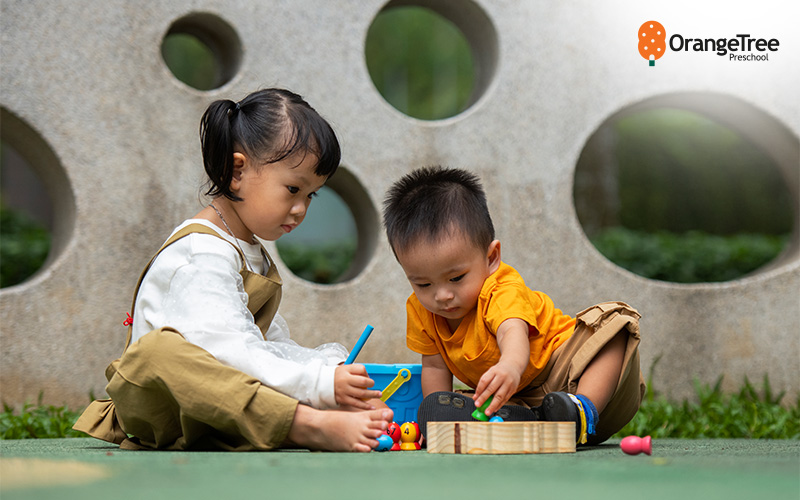
5 Surprising Benefits of Outdoor Play for Preschoolers
22 August 2025
Key Takeaways
- The benefits of outdoor play for preschoolers extend beyond physical exercise, supporting cognitive, social, and emotional development.
- Regular outdoor experiences help children develop essential problem-solving skills and build resilience.
- Exposure to nature enhances sensory and cognitive growth, contributing to well-rounded development.
In today’s digital, screen-filled world, giving young children regular outdoor experiences is more important than ever. Outdoor play is often thought of simply as a way to help children expand their seemingly boundless energy, but its benefits go far deeper. For preschoolers, outdoor play is a vital part of their growth, boosting physical health, encouraging creativity, and supporting emotional and social skills.
Here are five surprising benefits of outdoor play for preschoolers that highlight why it should be a vital part of their daily routine.
1. Boosts Physical Health
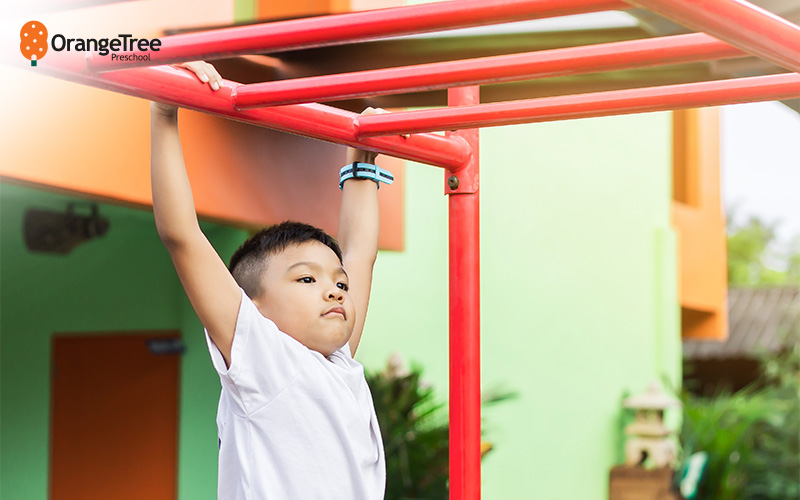
One of the most evident benefits of outdoor play for preschoolers is the freedom for them to move their bodies. Whether they are running, climbing, jumping, or balancing, these activities strengthen muscles and improve coordination. In Singapore’s climate, where outdoor play may sometimes be limited by the heat, indoor playgrounds and morning or late afternoon sessions are wonderful locations for them to run around whilst minimising overexposure to the sun and harmful UV rays.
Strong physical health in the early years lays the foundation for a healthy lifestyle that continues into adulthood. Children who are active outdoors tend to develop better stamina, balance, and motor skills, which are crucial for their confidence in physical activities at school and beyond.
2. Develops Problem-Solving Skills
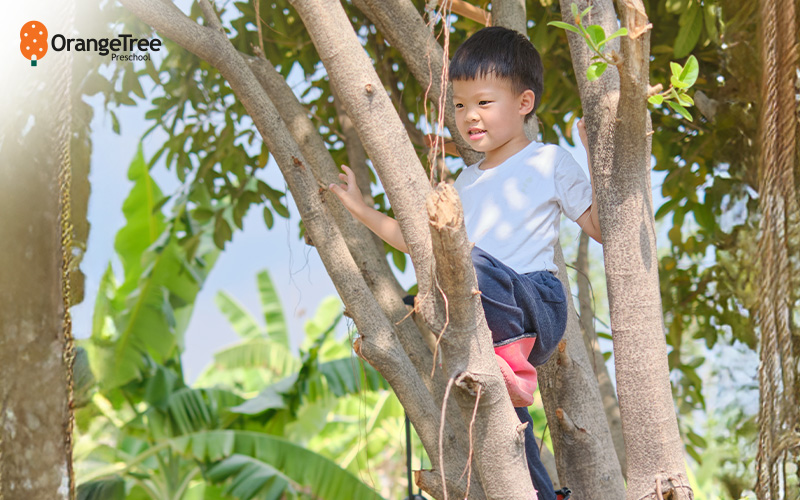
Unlike indoor toys or digital games, outdoor environments are often open-ended and unpredictable. This gives preschoolers opportunities to think creatively and figure things out for themselves. For example, climbing a tree requires deciding where to place their hands and feet, while building a sandcastle might require experimenting with different shapes and techniques.
These challenges encourage independent thinking and build important problem-solving skills. Children learn to approach obstacles with curiosity and persistence, which are valuable qualities for school readiness and lifelong learning.
3. Strengthens Social Skills
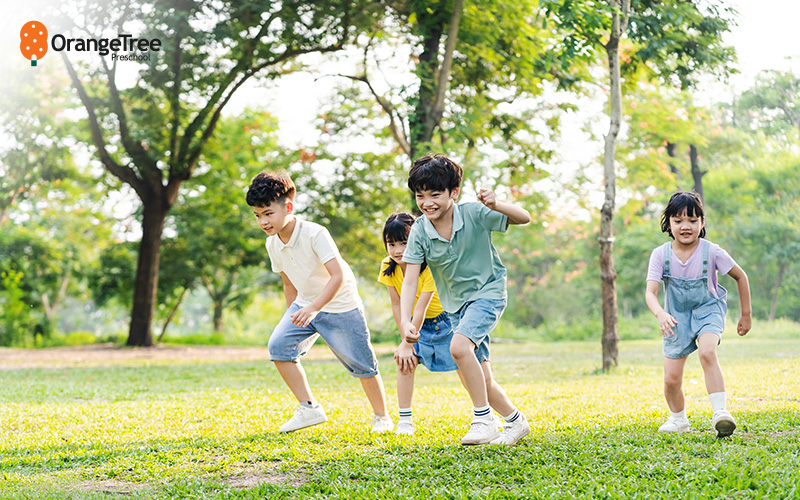
Playing outside with other children naturally builds teamwork and communication. Whether they are sharing toys in the sandbox or organising games on the playground, children practise cooperation, negotiation, and empathy in a way that feels more organic rather than forced.
Social interactions are a key benefit of outdoor play for preschoolers, helping them build friendships and develop conflict-resolution skills. These experiences provide a strong social foundation that supports emotional well-being and positive relationships at preschool and at home.
4. Encourages Risk Assessment and Resilience
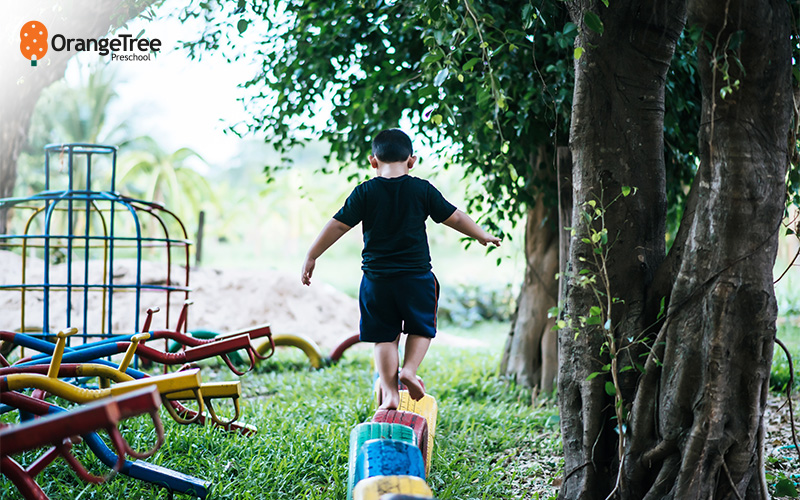
Outdoor play allows children to encounter manageable risks in a safe environment. Climbing structures, balancing beams, and jumping off low steps provide chances for kids to test their limits and learn to assess dangers for themselves.
This process is crucial for building resilience and confidence. When children succeed at small challenges, they develop a sense of accomplishment and learn that trying new things is rewarding, even if it involves a little uncertainty.
5. Enhances Sensory and Cognitive Growth
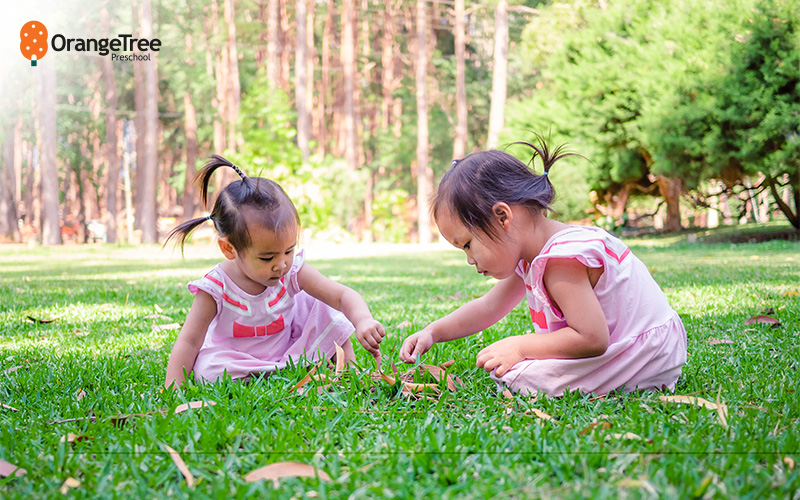
Yet another simple but important benefit of outdoor play for preschoolers is the opportunity to appreciate the beauty of nature and the outdoors. The sights of colourful flowers, the sounds of birds or rustling leaves, and the textures of bark or sand all make for a rich, sensory experience that stimulates young minds in ways that screens cannot replicate. These sights and sounds promote brain development by strengthening connections that support attention, memory, and learning.
Exposure to diverse environments helps with sensory and cognitive growth, allowing children to process information more effectively. This sensory integration is especially beneficial for children in playgroups and early years of preschool, setting the stage for successful learning and exploration.
The benefits of outdoor play for preschoolers are wide-ranging and deeply impactful. From improving physical health and problem-solving skills to enhancing sensory and cognitive growth, time spent outdoors supports every aspect of a child’s development. In Singapore’s urban setting, providing children with regular outdoor experiences may require some planning, but it is well worth the effort.
Here at Orange Tree Preschool, we offer a nurturing environment that balances indoor learning with outdoor activities designed to engage young learners. Our programmes, including our Mandarin preschool options, focus on holistic development through play, exploration, and early education.
To learn more about our programmes and facilities, please schedule a tour with us today.
